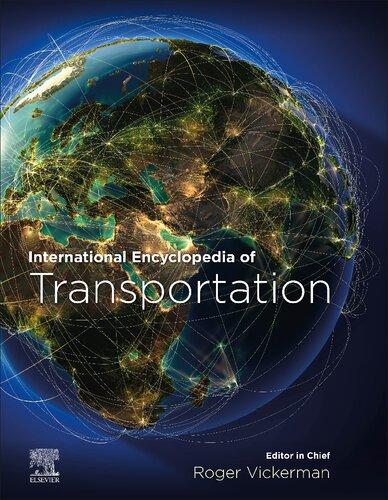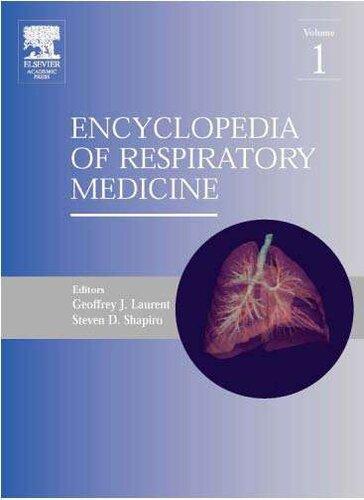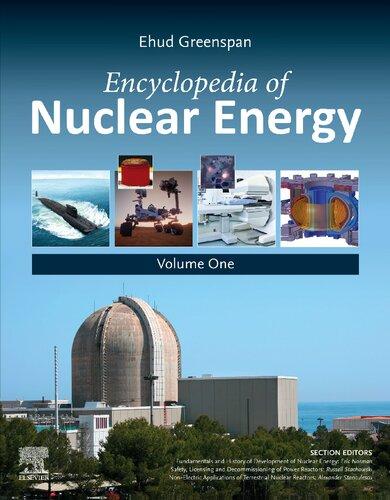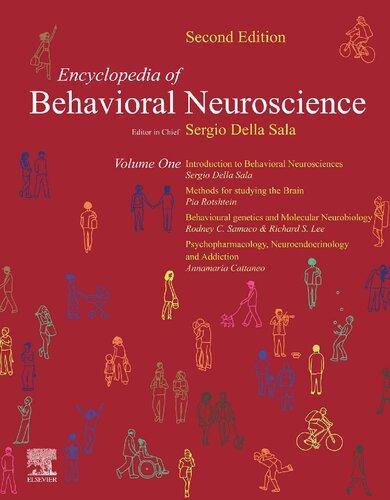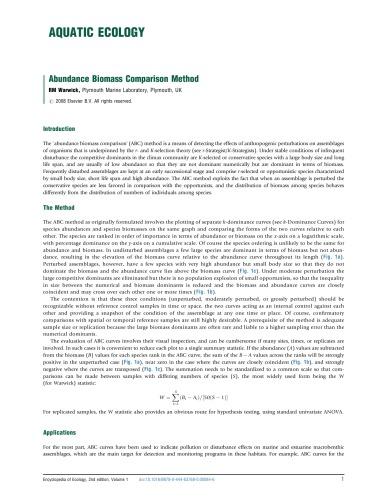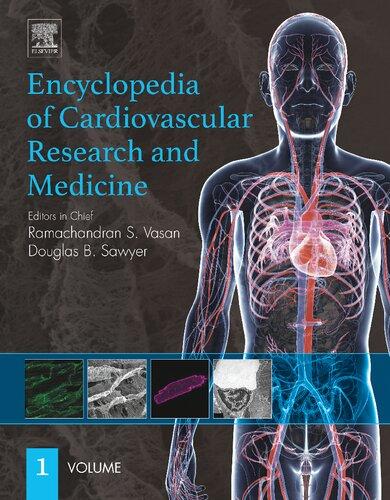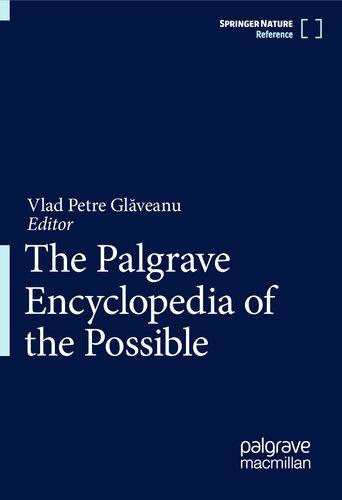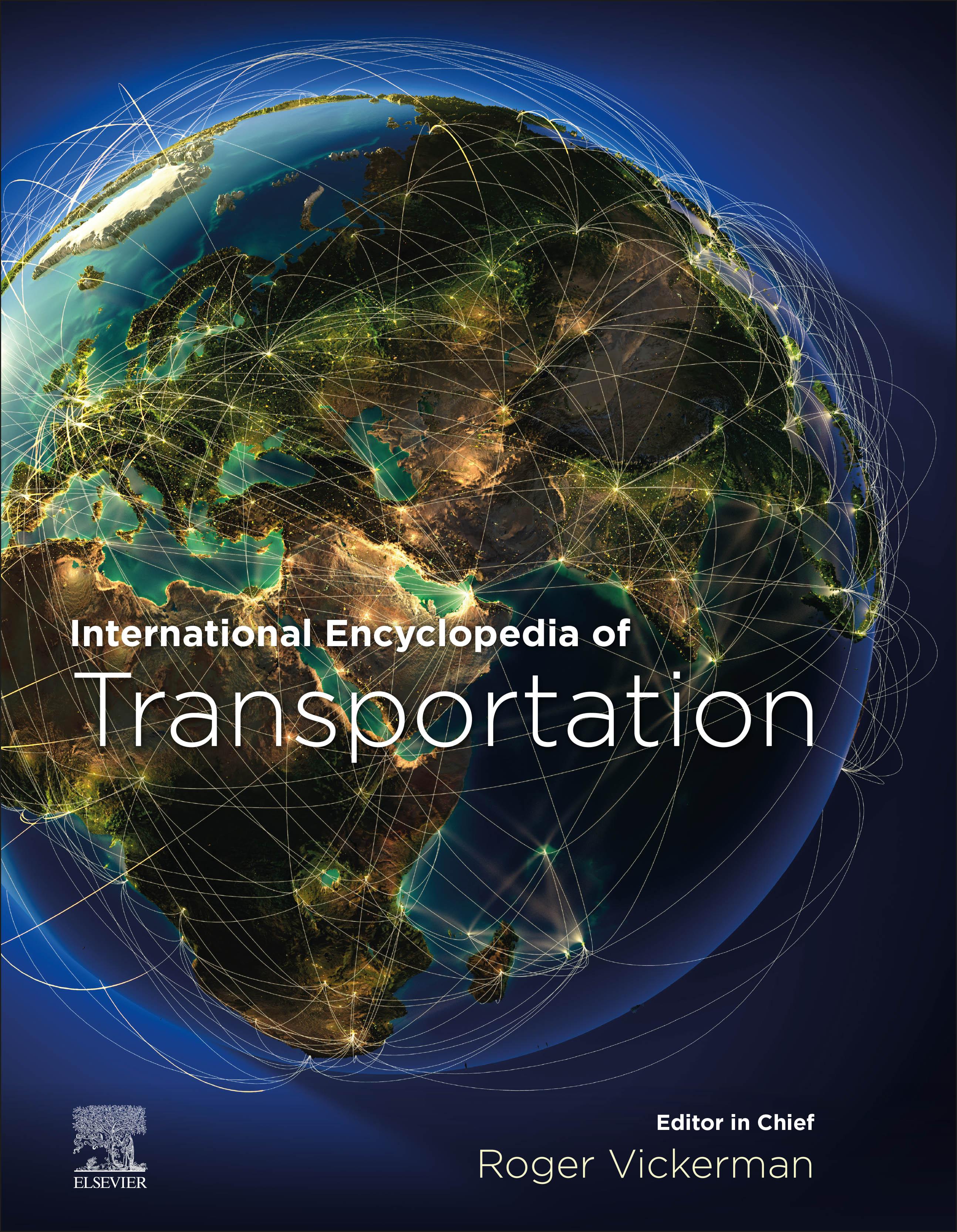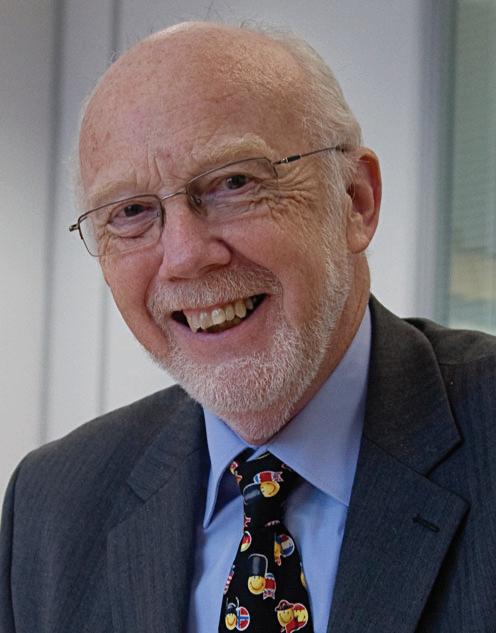LISTOFCONTRIBUTORSTOVOLUME1
JoseHolguı´n-Veras
DepartmentofCivilandEnvironmentalEngineering; CenterforInfrastructure,Transportation,andthe Environment;VREFCenterofExcellenceforSustainable UrbanFreightSystems,RensselaerPolytechnicInstitute, Troy,NY,UnitedStates
DianaG.Ramı´rez-Rı ´ os DepartmentofCivilandEnvironmentalEngineering, RensselaerPolytechnicInstitute,Troy,NY,UnitedStates
KathrinGoldmann
UniversityofMu ¨ nster,InstituteofTransportEconomics, Munster,Germany
GernotSieg
UniversityofMunster,InstituteofTransportEconomics, Munster,Germany
JoseManuelVassallo
TransportResearchCentre(TRANSyT),Universidad PolitecnicadeMadrid,Madrid,Spain; CentrodeInvestigacio´ndelTransporte(TRANSyT),ETSIde IngenierosdeCaminos,CanalesyPuertos,Madrid,Spain
RussellG.Thompson
TheUniversityofMelbourne,Melbourne,VIC,Australia
MarcoBatarce
FacultyofEconomicsandBusiness,UniversidadSan Sebastian,Santiago,Chile
AndredePalma
CREST,ENSParis-Saclay,UniversityofParis-Saclay, Paris,France
JulienMonardo
CREST,ENSParis-Saclay,UniversityofParis-Saclay, Paris,France
YulaiWan
HongKongPolytechnicUniversity,HongKong,China
DongYang
RicardoGiesen
DepartmentofTransportEngineeringandLogistics, PontificiaUniversidadCato´licadeChile,Santiago,Chile
Darı´oFarren
DepartmentofTransportEngineeringandLogistics, PontificiaUniversidadCato´licadeChile,Santiago, Chile
SofiaF.Franco
DepartmentofEconomics,UniversityofCalifornia-Irvine, Irvine,CA,UnitedStates
JohnJ.Bates
IndependentConsultantinTransportEconomics, Abingdon,Oxfordshire,UnitedKingdom
SvanteMandell
SwedishNationalInstituteofEconomicResearch, Stockholm,Sweden
KatrineHjorth TechnicalUniversityofDenmark,KongensLyngby, Denmark
DanielHo¨rcher
ImperialCollegeLondon,London,UnitedKingdom BudapestUniversityofTechnologyandEconomics, Budapest,Hungary
NathaliePicard UniversitedeStrasbourg,UniversitedeLorraine,CNRS, BETA,Strasbourg,France
BrunoDeBorger UniversityofAntwerp,Antwerp,Belgium
StefProost KULeuven,Leuven,Belgium
StefaniePeer
ViennaUniversityofEconomics&Business,Vienna, Austria
JonP.Nelson PennsylvaniaStateUniversity,StateCollege,PA, UnitedStates
HenrikAndersson ToulouseSchoolofEconomics,UniversityofToulouse Capitole,Toulouse,France
RaquelEspino
DepartmentofAppliedEconomicAnalysis,Instituto UniversitariodeDesarrolloEcono´micoSostenibley Turismo,UniversidaddeLasPalmasdeGranCanaria (ULPGC),LasPalmas,Spain
JuandeDiosOrtu ´ zar
DepartmentofTransportEngineeringandLogistics, InstitutoSistemasComplejosdeIngenierı´a(ISCI), PontificiaUniversidadCato´licadeChile,Santiago,Chile
LuisI.Rizzi
DepartmentofTransportEngineeringandLogistics, InstitutoSistemasComplejosdeIngenierı´a(ISCI), PontificiaUniversidadCato´licadeChile,Santiago, Chile
KennethASmall 1721W.104thPlace,Chicago,IL,UnitedStates
RobinLindsey
SauderSchoolofBusiness,UniversityofBritishColumbia, Vancouver,BC,UnitedKingdom
CharlesRaux
UniversityofLyon,CNRS,LAET,Lyon,France
JonasEliasson
DepartmentofScienceandTechnology,Divisionof CommunicationsandTransportSystems,Linko¨ping University,Norrkoping,Sweden
GinesdeRus
UniversityofLasPalmasdeGranCanaria,LasPalmasde GranCanaria,Spain
UniversityCarlosIIIdeMadrid,Madrid,Spain FEDEA,Madrid,Spain
DerejeAbegaz
DepartmentofTechnology,ManagementandEconomics, TechnicalUniversityofDenmark,Lyngby,Denmark
YiliTang
CaliforniaPATH,UniversityofCalifornia,Berkeley, California
DanielAlbalate UniversityofBarcelona(GiM-IREA),Barcelona,Spain
AlbertGragera
TechnicalUniversityofDenmark,Copenhagen,Denmark
AndrewDaly
InstituteforTransportStudies,UniversityofLeeds,Leeds, UnitedKingdom
JamesFox
RANDEurope,Cambridge,UnitedKingdom
BrunoDeBorger UniversityofAntwerp,Antwerp,Belgium
IsmirMulalic
TechnicalUniversityofDenmark,Kgs.Lyngby,Denmark
JanRouwendal
KraksFond,Copenhagen,Denmark VUUniversity,Amsterdam,TheNetherlands
FayDunkerley
RANDEurope,Cambridge,UnitedKingdom
CharleneRohr
RANDEurope,Cambridge,UnitedKingdom
MarkWardman
InstituteforTransportStudies,UniversityofLeeds,Leeds, UnitedKingdom
StephanLehner ViennaUniversityofEconomics&Business,Vienna, Austria
HaraldMinken InstituteofTransportEconomics,Oslo,Norway
LarsHultkrantz SchoolofBusiness,OrebroUniversity,Orebro,Sweden
JeremyToner UniversityofLeeds,Leeds,UnitedKingdom
MoezKilani UniversityofLittoral,Coted’Opale,Dunkerque,UMR 9221-LEM-LilleE ´ conomieManagement,Lille,France
JoseM.Grisolia UniversidaddeLasPalmasdeGranCanaria,LasPalmas deGranCanaria,Spain
KenWillis UniversityofNottinghamNingbo,Ningbo,China UniversityofNewcastle,Newcastle,UnitedKingdom
IoannisTikoudis OrganisationforEconomicCo-operationand Development(OECD),Paris,France
KurtVanDender OrganisationforEconomicCo-operationand Development(OECD),Paris,France
StephenIson LeicesterCastleBusinessSchool,DeMontfortUniversity, Leicester,UnitedKingdom
LucyBudd
ValeriaBernardo UniversityofBarcelona,TechnoCampus,Barcelona, Spain
XavierFageda UniversityofBarcelona,IESE,Barcelona, Spain
RicardoFlores-Fillol
UniversitatRoviraiVirgili,Reus,Spain
MogensFosgerau
UniversityofCopenhagen,Copenhagen,Denmark
NinettePilegaard
TechnicalUniversityofDenmark,KongensLyngby,Denmark
ChauManFung
CIB(CentreforIndustrialManagement/Traffic& Infrastructure),KULeuven,Leuven,Belgium
MortenWelde
NTNU-NorwegianUniversityofScienceandTechnology, DepartmentofCivilandEnvironmentalEngineering, Trondheim,Norway
JamesOdeck
NTNU-NorwegianUniversityofScienceandTechnology, DepartmentofCivilandEnvironmentalEngineering, Trondheim,Norway
JamesLaird
InstituteforTransportStudies,UniversityofLeeds, England,UnitedKingdom
DanielJohnson PeakEconomics,Inverness,Scotland
HugoE.Silva
InstitutodeEconomı´aandDepartamentodeIngenierı´ade TransporteyLogı´stica,PontificiaUniversidadCato´licade Chile,Santiago,Chile
QianwenGuo
DepartmentofFinanceandInvestment,BusinessSchool, SunYat-senUniversity,Guangzhou,China
ZhongfeiLi
DepartmentofFinanceandInvestment,BusinessSchool, SunYat-senUniversity,Guangzhou,China
RafaelH.M.Pereira
InstituteforAppliedEconomicResearch-Ipea,Brazil
AlexKarner
TheUniversityofTexasatAustin,UnitedStates
NiekMouter DelftUniversityofTechnology,TheNetherlands
DanielJ.Graham
TransportStrategyCentre,ImperialCollegeLondon, London,UnitedKingdom
AdelheidHoll InstituteofPublicGoodsandPolicy(IPP),CSIC-Spanish NationalResearchCouncil,Madrid,Spain
JanRouwendal VrijeUniversiteitAmsterdam,Amsterdam,TheNetherlands
JohanNystro¨m
TheSwedishNationalRoadandTransport ResearchInstitute(VTI),Stockholm, Sweden
Zhi-ChunLi SchoolofManagement,HuazhongUniversityofScience andTechnology,Wuhan,China
Ya-JuanChen SchoolofManagement,WuhanUniversityofTechnology, Wuhan,China
GerarddeJong
TheNetherlandsInstituteforTransportStudies, UniversityofLeeds,Leeds,UnitedKingdom
EdoardoMarcucci DepartmentofPoliticalScience,UniversityofRomaTre, ViaGabrielloChiabrera,Roma,Italy
ValerioGatta DepartmentofPoliticalScience,UniversityofRomaTre, ViaGabrielloChiabrera,Roma,Italy
MichelaLePira
DepartmentofCivilEngineeringandArchitecture, UniversityofCatania,ViaSantaSofia,Catania, Italy
AndreasVigren
Stockholm,Sweden
AlexAnas DepartmentofEconomics,StateUniversityofNewYorkat Buffalo,NewYork,NY,UnitedStates
PatriciaC.Melo DepartmentofEconomics,ISEG-SchoolofEconomicsand Management,UniversidadedeLisboa&REM/UECE, Lisbon,Portugal
AnthonyJ.Venables DepartmentofEconomics,UniversityofOxford,Oxford, UnitedKingdom
AnnaMatas
UniversitatAutonomadeBarcelonaandBarcelona InstituteofEconomics,Barcelona,Spain
JavierAsensio UniversitatAutonomadeBarcelonaand BarcelonaInstituteofEconomics,Barcelona, Spain
DidiervandeVelde Inno-VConsulting,Amsterdam,TheNetherlands
FabioHirschhorn DelftUniversityofTechnology,Delft, TheNetherlands
TizianaD’Alfonso
DepartmentofComputer,Control,andManagement EngineeringAntonioRuberti,SapienzaUniversityof Rome,Rome,Italy
GiuseppeCatalano
DepartmentofComputer,Control,andManagement EngineeringAntonioRuberti,SapienzaUniversityof Rome,Rome,Italy
JohnArmstrong UniversityofSouthampton,Southampton, UnitedKingdom
JohnPreston
UniversityofSouthampton,Southampton, UnitedKingdom
DavidMeunier
LVMT,UMRT9403,EcoledesPontsParisTech,France
EmileQuinet
ParisSchoolofEconomics,EcoledesPontsParisTech,France
AnmingZhang
SauderSchoolofBusiness,UniversityofBritishColumbia, Vancouver,Canada
YahuaZhang
SchoolofCommerce,UniversityofSouthernQueensland, Toowoomba,QLD,Australia
ZhibinHuang
SchoolofCommerce,UniversityofSouthernQueensland, Toowoomba,QLD,Australia
AchimI.Czerny
DepartmentofLogisticsandMaritimeStudies,HongKong PolytechnicUniversity,HongKong,China
HaoLang
DepartmentofLogisticsandMaritimeStudies,HongKong PolytechnicUniversity,HongKong,China
GuoquanZhang
SchoolofCommerce,UniversityofSouthernQueensland, Toowoomba,QLD,Australia
ColinC.H.Law
SchoolofCommerce,UniversityofSouthernQueensland, Toowoomba,QLD,Australia;FacultyofBusinessand Technology,Stamford;InternationalUniversity,Bangkok, Thailand
YahuaZhang
SchoolofCommerce,UniversityofSouthernQueensland, Toowoomba,QLD,Australia
HangjunYang
SchoolofInternationalTradeandEconomics, UniversityofInternationalBusinessandEconomics, Beijing,China
ChrisNash
InstituteforTransportStudies,UniversityofLeeds,Leeds, Yorkshire,UnitedKingdom
AndrewSmith
InstituteforTransportStudies,UniversityofLeeds,Leeds, Yorkshire,UnitedKingdom
BertvanWee
DelftUniversityofTechnology,TheNetherlands
KristoferOdolinski
TheSwedishNationalRoadandTransportResearch Institute,DepartmentofTransportEconomics,Stockholm, Sweden
PhillWheat
InstituteforTransportStudies,UniversityofLeeds,Leeds, UnitedKingdom
SiriPettersenStrandenes
NorwegianSchoolofEconomics,Bergen,Norway
KevinP.B.Cullinane UniversityofGothenburg,Gothenburg,Sweden
JasmineSiuLeeLam SchoolofCivilandEnvironmentalEngineering,Nanyang TechnologicalUniversity,Singapore
HeikeLink
GermanInstituteforEconomicResearchBerlin(DIW Berlin),DepartmentEnergy,Transport,Environment, Berlin,Germany
OlgaIvanova
PBL,TheHague,TheNetherlands
MarcoPonti BridgesResearchTrust(ScientificResponsible),Milano, Italy
TomWorsley
VisitingFellow,InstituteforTransportStudies,University ofLeeds,Leeds,UnitedKingdom
IanSavage DepartmentofEconomicsandtheTransportationCenter, NorthwesternUniversity,Evanston,IL,UnitedStates
JamesOdeck DepartmentofCivilandEnvironmentalEngineering, NTNU-NorwegianUniversityofScienceandTechnology, Trondheim,Norway
MortenWelde DepartmentofCivilandEnvironmentalEngineering, NTNU-NorwegianUniversityofScienceandTechnology, Trondheim,Norway
JoelP.Franklin
KTHRoyalInstituteofTechnology,Stockholm,Sweden
JakeWhitehead
UQDowCentreforSustainableEngineeringInnovation &SchoolofCivilEngineering,TheUniversityof Queensland,StLucia,QLD,Australia
PatrickPlo¨tz
FraunhoferInstituteforSystemsandInnovationResearch ISI,Karlsruhe,Baden-Wu ¨ rttemberg,Germany
PatrickJochem
InstituteforIndustrialProduction(IIP), ChairofEnergyEconomics,KarlsruheInstituteof Technology(KIT),Karlsruhe,Baden-Wu ¨ rttemberg, Germany
FrancesSprei
ChalmersUniversityofTechnology,DepartmentofSpace, EarthandEnvironment,Goteborg,Sweden
ElisabethDu¨tschke
FraunhoferInstituteforSystemsandInnovationResearch ISI,Karlsruhe,Baden-Wurttemberg,Germany
PedroCantos-Sanchez
DepartmentofEconomicAnalysisandERI-CES, UniversityofValencia,Valencia,Spain
PatrickM.Bo¨sch VerkehrsbetriebeZurich,Zurich,Switzerland
FelixBecker
InstituteforTransportPlanningandSystems,Zu ¨ rich, Switzerland
HenrikBecker
InstituteforTransportPlanningandSystems,Zurich, Switzerland
KayW.Axhausen
InstituteforTransportPlanningandSystems,Zu ¨ rich, Switzerland
JohannesBro¨cker KielUniversity,InstituteforEnvironmental,Resourceand SpatialEconomics,Kiel,Germany
StefanFlu¨gel
InstituteofTransportEconomics,Oslo,Norway
AskillH.Halse
InstituteofTransportEconomics,Oslo,Norway
GrietDeCeuster
Transport&MobilityLeuven,KULeuven, Diestsesteenweg,Leuven,Belgium
IngeMayeres
Transport&MobilityLeuven,KULeuven, Diestsesteenweg,Leuven,Belgium
PaoloBeria PolitecnicodiMilano,Milan,Italy
JingLu NanjingUniversityofAeronauticsandAstronautics, Nanjing,China
YucanMeng
NanjingUniversityofAeronauticsandAstronautics, Nanjing,China
ChangminJiang UniversityofManitoba,Winnipeg,Canada
ChengLv NanjingUniversityofAeronauticsandAstronautics, Nanjing,China
AndrewSmith
InstituteforTransportStudies,UniversityofLeeds,Leeds, UnitedKingdom
ChrisNash
InstituteforTransportStudies,UniversityofLeeds,Leeds, UnitedKingdom
JeppeRich TechnicalUniversityofDenmark,Lyngby,Denmark
PatrickE.P.Jochem InstituteforIndustrialProduction(IIP),ChairofEnergy Economics,KarlsruheInstituteofTechnology(KIT), Karlsruhe,Germany
JakeWhitehead SchoolofCivilEngineering,TheUniversityof Queensland,StLucia,QLD,Australia
ElisabethDu¨tschke
FraunhoferInstituteforSystemsandInnovationResearch ISI,Karlsruhe,Germany
PhilippeGagnepain
ParisSchoolofEconomics-UniversiteParis1,Paris,France
MarcIvaldi
ToulouseSchoolofEconomics-EHESS,Toulouse, France
StefanGo¨ssling DepartmentofServiceManagementandServiceStudies, LundUniversity,Lund,Sweden
SusanShaheen UniversityofCalifornia,Berkeley,CA,UnitedStates AdamCohen UniversityofCalifornia,Berkeley,CA,UnitedStates
GeorginaSantos
SchoolofGeographyandPlanning,CardiffUniversity, Cardiff,UnitedKingdom
Jani-PekkaJokinen
MaxPlanckInstituteforDynamicsandSelfOrganization,Go¨ttingen,Germany
LeifSo¨rensen
DepartmentofPsychology,PFHPrivate
UniversityofAppliedSciencesGottingen,Gottingen, Germany
JanSchlu¨ter
DepartmentofEconomics,Georg-August-Universityof Go¨ttingen,Go¨ttingen,Germany
FedericoBoffa
FreeUniversityofBozen,FacultyofEconomics,Brunico, Italy
AlbertoIozzi
“TorVergata”UniversityofRome,Departmentof EconomicsandFinance,Rome,Italy
AnnaNagurney
DepartmentofOperationsandInformation Management,IsenbergSchoolofManagement, UniversityofMassachusetts,Amherst,MA,UnitedStates
LadimerS.Nagurney
DepartmentofElectricalandComputerEngineering, UniversityofHartford,WestHartford,CT,UnitedStates
Another random document with no related content on Scribd:
“Nothing. A little evidence which was worthless was given, and the case was adjourned until next Thursday. But you may assure your sister that there is no danger to Mr. Gaunt. The worst he did was to shoot Marillier, but it was in self-defense, and he was justified.”
“I agree with you. The man deserved death,” she answered vehemently.
Drake suddenly realized that he was still holding her hands—and a vivid flush came to his cheeks.
“Ethel, I love you,” he whispered passionately, for the temptation was too great for his strength, and for the moment he had forgotten that this was the woman whom his brother loved.
She disengaged herself gently, and her eyes met his steadily. But before she could speak the door was thrown open and Gaunt came in.
Lady Ethel gave a quick sigh of relief, but her face was flushed and she deliberately turned away from Edward Drake.
“Are you ready?” Gaunt asked of the latter.
“Yes.”
“Come along then.”
Drake still hesitated, but receiving no encouragement from Lady Ethel, he moved slowly away. She hastened after them, however, and addressed her brother-in-law.
“John, I am going back to Mildred. Won’t you send her some message?”
“I have already answered you.”
“You are very cruel. You ought to make allowances for her,” she cried passionately.
“Good-bye,” he called to her, and slipping his arm through Drake’s hastened away.
Lady Ethel realized that it was no use to stay longer, so made preparations for her return, and was about to enter the car that was in waiting at the door when she heard her name called; and turning, she saw Lindsay Drake approaching her, an eager smile on his face.
“I am so glad to see you. I thought I should not have an opportunity of wishing you good-bye.”
“You are going away?” she said quickly, and then gave him a curious look. “Come with me a little way. Mr. Gaunt and your brother have just gone out,” she added.
“I ought to see them at once,” he answered doubtfully.
“Surely you can spare half an hour?”
Her manner was so gracious that he could not withstand the temptation.
“I must not be late,” he remarked, and jumped up beside her and the car started off immediately.
“Are you going abroad?” she asked casually.
“To West Africa.”
“Surely your leave is not up? You have only just come home. May I ask if you are going alone?”
“I would much rather not talk about myself,” he answered hurriedly.
“Then let us talk of Mr. Gaunt. Is he accompanying you to West Africa?”
Captain Drake did not answer and she grew more insistent.
“And is your destination the Congo?” she persisted.
Perhaps it was intuition coupled with her woman’s wit that made her ask the question. There was the fact that Gaunt was evidently making preparations for a long absence; and she remembered the determined way in which he was fighting for the cause of the Congo
natives. Now there was Captain Drake’s hurried departure and when she saw his hesitation her conjecture seemed to be verified.
“So Mr. Gaunt is going with you to the Congo?” she insisted.
“I wish you would not ask me these questions, Lady Ethel. I hate to refuse you but already I have been indiscreet. I would willingly tell you everything but in honor I am bound to silence,” he said earnestly.
“You have answered me, and I wish to know what it means. You must be aware that my sister and Mr. Gaunt have quarreled, and if he goes away for a long time, their estrangement may be forever. It is this mystery which is the cause of everything. Tell me the reason that compelled Mr. Gaunt to force this scandal upon us. He did force it, for at a word from him the whole thing would have subsided. If only my sister knew his motive, I believe that she would go to him and ask for forgiveness.”
Captain Drake was moved, for he could see that she was greatly disturbed, and for the moment he was tempted to tell her everything. But the temptation was thrust aside, and his face became stern.
“I can only say that his motive does him honor,” he said steadily.
Suddenly he gave a cry for he chanced to look through the window and saw that they had reached the country. He had been so deeply interested in his companion that all knowledge of time and place had left him, but now he realized that he would be late for his appointment.
“Where are we?” he asked anxiously.
“I really do not know,” she answered with indifference.
“I must get back to London at once. Please order the chauffeur to return.”
“You will not do what I ask; then why should I help you?” she said with a touch of malice.
In an instant he had moved the indicator, the car came to a standstill, and he jumped to the ground.
“How far are we from a railway station?” Drake demanded curtly from the chauffeur.
“Two or three miles, sir,” the chauffeur replied.
“Mr. Drake, come back into the car,” Lady Ethel said in a low voice; and when she saw that he hesitated, added to the chauffeur: “Drive back towards London, but stop when we meet a taxi-cab.”
“Thank you,” Drake said gratefully, and once more sat down beside her.
For a time neither of them spoke but he was conscious that every now and then she threw him a quick glance from beneath her lashes. His eyes were turned steadily towards the passing scenery, for he dared not look at her.
“Captain Drake, I am sorry. It was a mean trick,” she began nervously.
In an instant his hand had covered hers, pressing it convulsively.
“Lady Ethel, I shall not see you again for a long time, and this is my good-bye. I want you to know that I love you. Don’t answer me, for I know that I have nothing to offer. I am a poor soldier, and——” he broke off, for his voice shook. “But I couldn’t go away without letting you know of my love.”
Her face had grown white and she did not answer, but he did not see that her eyes were dim, and her face sad.
Suddenly the brakes were put on, the car slowed down, and the chauffeur signaled to an approaching taxi-cab driver.
“Good-bye—won’t you wish me good luck?” Drake said hoarsely.
“Good-bye, and I hope that you will all come back safely. I am sorry, very sorry. Please tell your brother that—but no, I won’t send my message. Good-bye.”
And she watched him drive away.
“Where to, my lady?” the chauffeur asked respectfully.
“Home.”
“Park Lane, my lady?”
“No. To Lynton House,” she answered.
The car started and Lady Ethel drew down the blinds for she was crying quietly.
CHAPTER XXXIV
WHEN Baron de Croiseuil heard the magistrate’s decision that bail should be granted to Gaunt, his indignation was intense, for both his solicitor and Mr. Ruggles, K. C., had advised him that such an eventuality need not be considered. Immediately the case was over, he hastened back to his hotel where he was soon joined by Sherren, who had been in attendance at the court.
“English magistrates are fools,” the Baron cried angrily by way of greeting, and Sherren did not dissent from this stricture on the bench.
“What is your next move?” the latter asked.
“I haven’t yet considered it, for I had counted upon Gaunt being put safely out of the way for a time. What about the Amanti case?”
“Weiss is in a furious rage that his name had been mentioned, and when I saw him last night, he made all sorts of threats.”
“Never mind Weiss. He doesn’t count. Do you think your friend of the Amanti Company would bring Gaunt into the case? I understand that counsel is of opinion that he could be got at on a charge of conspiracy?”
“That is true, Baron, but that would necessitate Weiss also being charged.”
“I said that Weiss didn’t count, and if necessary he’ll have to suffer with the others,” De Croiseuil said impatiently.
“Wouldn’t it be better to wait till the adjourned hearing of Gaunt’s case? If you can only manage to get some strong evidence from Brussels, the magistrate would refuse to grant bail.”
“That is impossible, for there’s no evidence to be got.”
“It wouldn’t be the first time that evidence had been manufactured,” Sherren suggested.
“True, but I don’t like your English courts of justice. Now, if the trial were only taking place in the Congo——”
He shrugged his shoulders expressively, and lapsed into silence.
“I think we had better wait developments,” he said at last. “You can go, Sherren, for you will have plenty of work to do. See that the case is reported as fully as possible from our point of view,” he added significantly.
“I shall have some difficulty in working the papers. Sir Richard Tester is a man who carries a good deal of weight, and he did not mince matters to-day. It is probable that the more influential journals will regard the case as an attempt to close Gaunt’s mouth, and as I have already told you, our press is not easily handled. Besides, newspapers may not comment upon a case which is sub judice.”
“You think that the bringing of the case was a mistake?”
“Yes, inasmuch as bail was granted. Gaunt’s meetings will be packed and now the British public will look upon him as something of a martyr.”
“You must persuade your Amanti friends to prosecute him. They can’t say that I have a hand in that and the two cases together may make some impression.”
“It might be done, but Gaunt is a powerful man, and my friend might not like the task of fighting him,” Sherren said slowly.
“What kind of a man is he—as unscrupulous as yourself?”
“Pardon me, Baron, but there is no need to insult me.”
“Can you bribe him?” the Baron asked impatiently.
“He might be prepared to accept a pecuniary inducement,” Sherren answered cautiously.
“Sound him, and let me know the result. Now you can go.”
It was but seldom that the Baron’s manner lost the suavity but he was upset for he realized that he had been guilty of an unforgivable sin—an error in tactics. However, the events of the next few days reassured him somewhat, for Gaunt made no sign. In fact several meetings on the Congo question had been canceled and he began to grow rather uneasy.
“Have I frightened him?” he asked himself.
But instinct told him that Gaunt was not the man to be beaten so easily and he wondered what was to be the next move. He had seen Lady Mildred leave the court during the trial, and had ascertained that she had gone to Lynton House. Therefore it was natural to suppose that husband and wife had quarreled, and he realized that Gaunt must be greatly embittered by the false story that he had put forward. To add to the Baron’s discomfort, the authorities in Belgium were very displeased with what had happened, and their letters had expressed their opinions very forcibly. The Baron, for the first time, was glad that his late master was dead for King Leopold would have shown him no mercy.
However, witnesses were sent over from Brussels, and amongst them was the official who had made inquiries into Marillier’s death. This gentleman’s name was M. Bouvais and his instructions were to proceed to the Baron’s hotel.
“You are prepared to give evidence?” De Croiseuil asked curtly in French.
“Certainly, your Excellency, but I speak very little English.”
“That doesn’t matter. But, stay, I will translate to you what our counsel, M. Ruggles—mon dieu what a name!—what the counsel said at the court.”
Bouvais listened attentively, and his face was expressive of blank amazement.
“Now you know what your evidence will be. It is not difficult to remember,” the Baron wound up cheerfully.
“But it is not the truth. I examined the facts and judged that Gaunt was justified in shooting Marillier. The man was canaille,” Bouvais said quietly.
“You must forget that and only remember what I have just read,” the Baron rejoined suavely.
“I fear that I do not understand your Excellency. As a man of honor I must tell the truth,” Bouvais said with quiet dignity.
“The exigencies of the service demand a little sacrifice. It is essential that Gaunt is confined in prison. Remember what is at stake, monsieur.”
“My honor is at stake and I remember that.”
“Don’t be foolish, mon cher Bouvais. We have a way of handsomely rewarding those who are zealous for our interests. If I remember your record, you were not quite so scrupulous in the Congo. As a minor official you got more than your quantum of rubber, and there were a few incidents in the collecting of it. There was the massacre of one village about which the missionaries made an outcry. They demanded your trial, and we protected you. It was not so very long ago that you were in charge of a district. Of course we denied that you were guilty of atrocities, but how many natives were killed when that chief rebelled? You wiped out many villages and——”
“They were only natives, and I did as I had been ordered. I did as my brother officials have done and are doing,” Bouvais answered warmly.
“And yet you will not consent to give this evidence against Gaunt?”
“No. He is a white man, and I liked him,” was the decisive reply.
“Ah, Bouvais, your answer pains me, for I fear that we shall cease to be friends. You are drawing a pension, and we cannot continue to pay one who will not go out of his way to help us.”
“The pension is a small one and I am not a poor man.”
“And all your wealth you have got through us. This is your gratitude to those who gave you the chance of becoming a rich man. But you cannot be serious. Consider, my friend. You are rich and we can add to your riches; upon my recommendation you will receive honors.”
“But in receiving honors I shall lose my own. I cannot do this thing, and nothing you can say will make me change my decision.”
The Baron was a keen judge of human nature, and knew when he was beaten, so he made no further effort to persuade Bouvais.
“You can go back to Brussels. I will report upon your disobedience,” he said coldly.
Bouvais bowed slightly, and without another word left the room. He was like dozens of his fellow-countrymen, who think nothing of killing off and torturing a native, yet would hesitate to commit deliberate perjury.
The Baron was thoroughly irritated by his lack of success, and, for a while, paced restlessly up and down the room until he was interrupted by the entrance of a waiter.
“Mr. Weiss is here, sir.”
“I cannot see him. Say that I am engaged,” the Baron said impatiently.
“I rather expected that, so I took the precaution of coming up,” Weiss said from the doorway, and strolled in.
There was a glitter of anger in his eyes, but his manner was very calm and collected.
“What explanation have you to give me of your dastardly conduct?” he demanded.
“I do not understand. Have you any cause for complaint?” the Baron asked quickly.
“You know that you have betrayed me. It was your tool Sherren who caused Davies to be prosecuted, and it was you who caused my name to be mentioned.”
“Why should I do that, Mr. Weiss?”
“Because you wish to get at Gaunt. I came to you as a friend, and I trusted you. In return you have made my name a byword.”
“I deny it. I have had nothing to do with the matter,” the Baron said calmly.
“And Sherren?”
“He had nothing to do with it—to my knowledge. I am surprised that you can accuse me of such dishonorable conduct.”
“I happen to know that Sherren was the moving spirit. I am not a fool, Baron, and understand that you found it necessary to sacrifice me. You deny it well—we will leave it at that for the moment. Good-day, Baron. I think that you will find me a dangerous enemy,” Weiss said menacingly and took his departure.
And the Baron resumed his restless walk, but he was disturbed by the Jew’s threats, for he knew the man to be powerful. However, he comforted himself with the thought that Weiss could do very little to injure him. Any exposure of the part he (the Baron) had played would naturally call attention to Weiss’ own guilt.
The Baron was present at the adjourned hearing against Gaunt, and to his dismay, the magistrate was not in the least sympathetic. In fact he commented severely upon the evidence that was brought forward, and when he adjourned the court made some significant remarks to Mr. Ruggles.
“I am very dissatisfied with this case. It seems to me that it has been brought recklessly, and without sufficient evidence.”
“My material witnesses were in the Congo but they are now on the way to this country,” Mr. Ruggles intervened.
“Until their arrival, I will say no more.”
“There is further evidence that I can produce in a week’s time,” Mr. Ruggles urged.
“Then I will adjourn the case till then. The prisoner will be released on the same bail.”
“I am instructed that there is a grave suspicion that the prisoner intends to leave the country, and I strongly urge that your Worship will refuse to grant bail.”
“May I ask if my learned friend has any evidence to back up that suggestion?” Sir Richard Tester asked quietly.
But Mr. Ruggles made no answer.
“The insinuation is in keeping with the rest of the case— groundless,” Sir Richard continued.
“The bail will be as before,” the magistrate announced abruptly.
And John Gaunt, who stood in the dock, drew a deep breath of relief.
CHAPTER XXXV
WHEN Lady Mildred was told that her sister had gone away in the motor-car without leaving any message, she at once jumped to the conclusion that her journey was to London. She had been aware that Lady Ethel had been very anxious, and it was natural to think that she might go to see John Gaunt with the idea of affecting a reconciliation between herself and her husband.
The week’s solitude had somewhat softened her feelings, but there still remained some bitterness. And perhaps, too, jealousy that Gaunt would not make a sacrifice to retain her love.
But when the afternoon came to an end, she began to wait with impatience her sister’s return, and her restlessness increased with each passing hour. When at last the sound of the car could be heard she ran eagerly to meet her.
“Where have you been? Why did you not tell me you were going?” she demanded impetuously.
Lady Ethel smiled a little wanly as she threw off her furs.
“I have been to London. But let us go to your room, dear.”
The sisters did not speak again until they were alone and there was great anxiety in Lady Mildred’s eyes.
“I have seen your husband.”
“Tell me at once. Why do you hesitate?” Lady Mildred cried vehemently.
“It is difficult to explain what happened. It was as I thought. Your letter has wounded him deeply, and I am afraid that you must go to him, if you wish to be forgiven.”
“Forgiveness!” Lady Mildred repeated scornfully.
“Yes. You, I think, are in the wrong. If you take my advice you will order the car and go to London at once. You would get there by ten o’clock.”
“Why should I go to him? It is I who have been wronged, and he must come to me.”
“If that is your state of mind, then I fear that you will remain apart. It is a pity, for I am convinced that you are both passionately in love with one another. Pride is responsible for the ruin of many lives, and I pray you not to be stupid, dear,” Lady Ethel said gently.
Lady Mildred was silent, and it was evident that she was struggling with herself. It was strange to find that her sister’s sympathy was so decidedly in favor of her husband, and she began to wonder if, after all, she herself might be to blame. But the scene in court came back to her mind, and she could hear the counsel’s words as he described the charge against Gaunt.
And while she fought with her pride, she was conscious that her love for John Gaunt was burning fiercely, and that if he were to appear she would receive him with widely opened arms.
“I went to Park Lane, and no one was there,” Lady Ethel continued quietly. “I chanced to pass your husband’s room and I saw many trunks there, so I imagine that he is going away.”
Lady Mildred drew a quick breath, and a look of fear crept into her eyes when she remembered the talk in the library.
Could John be going to the Congo? Was it possible that they were about to carry out the mad scheme that they discussed?
“Ethel, you must come back with me,” she cried eagerly.
“I am very tired, but I will gladly come,” Lady Ethel answered, and all the listlessness vanished in an instant.
“Give orders for the car, and I will see about the packing. Baby will stay here with nurse.”
“You are going to John?”
“Yes. Yes. I have been a fool, and I see it for the first time. You are right, Ethel. There is only one thing that matters.”
“Love,” Lady Ethel repeated softly, and the color came to her cheeks.
Half an hour later the sisters were driving back to London, and the chauffeur had received instructions to travel as quickly as possible. Now and then the car swayed ominously, but neither of them noticed the tremendous rate at which they were going. Lady Mildred began to tell of Gaunt’s plans to hold up the Congo Free State, and her story was listened to with intense eagerness.
“Is Mr. Drake going?” she asked in a low voice.
“Yes, and his brother. It is a curious business for a parson to join in.”
“Mildred, I warn you to prepare yourself for a disappointment if you think that you will be able to persuade your husband to back out of it. He loves you passionately; but there are some things that have more weight with him than love.”
“I don’t think he will go, if I can only see him,” Lady Mildred answered confidently.
The conversation languished and they were both relieved when at last the car stopped at their house in Park Lane.
“Is your master in?” Lady Mildred demanded of the footman.
“No, my lady. He left a couple of hours ago,” was the answer.
She entered quickly and ran up to her room in the hope that there might be a letter for her, but there was nothing there.
“I will ask the servants if there is any message. You had better rest quietly; you look ill,” Lady Ethel said and hastened away.
She returned in a few minutes, and her face was grave as she sat down by her sister.
“He has gone, and has left no message at all. I have been to his rooms, and the trunks are not there,” she announced.
“What does it mean?” Lady Mildred asked hoarsely. “Do you think that he can already have started?”
“No, but we must be very careful what we say. We must be loyal to John, and we must not arouse any suspicion among the servants.”
“It is nearly eleven o’clock—too late to do anything to-night,” Lady Mildred said miserably.
There was a knock at the door and Lord Lynton came in hurriedly.
“Have you any idea where Gaunt is?” he asked anxiously.
“No. Haven’t you seen him?”
“I have been dining with Sir Keith Hamilton, and afterwards he talked to me very plainly. It appears that he has formed a great liking for Gaunt, and he expressed his opinion very forcibly about this police court business. He is convinced that Gaunt played no unworthy part in that Marillier affair, and that the whole thing is a put up job on the part of the Baron. I chanced to say that I had taken up rather a strong attitude, and he promptly told me that I was a fool, advising me to go and make my peace at once.”
“And I have come on a like errand, but I am afraid that we are too late,” Lady Mildred said brokenly, and tears forced themselves to her eyes.
“Surely there ought to be no difficulty in finding him,” the Earl said decidedly.
“Perhaps he has already left the country?” Lady Ethel broke in.
“No, that’s impossible, for he is on bail,” Lord Lynton replied.
“Bail would not prevent him from going. I think I ought to tell you ——”
But Lady Mildred pulled her sister up sharply.
“We have no right to tell John’s secrets to any one. Perhaps we are worrying ourselves about nothing. There may be news in the morning,” she said hopefully, but there was no hope in her heart.
The morning came and the sisters breakfasted at an early hour. But there was no letter.
“Shall we call at the Carlton? Captain Drake was staying there,” Lady Ethel suggested, and they visited the hotel, only to find that he, too, had left on the previous evening.
“I believe that he has gone to the Congo,” Lady Mildred cried vehemently when they were once more in the car.
Next they visited Gaunt’s office in the city, where they were received by Mr. Foster, the secretary, who could give them no information.
“Mr. Gaunt has ceased to come here, my lady. In a couple of months’ time the office will be finally closed.”
“When did you last see Mr. Gaunt?” Lady Mildred asked eagerly.
“Yesterday, but I have no idea where he is at present.”
“Cannot you tell me if he is going abroad?” she persisted.
“No, my lady. I have no information at all. It is not Mr. Gaunt’s custom to tell me of his movements, unless he thinks it necessary for me to know,” Mr. Foster answered with a smile.
They returned straight to Park Lane, for that was the most likely place at which they would receive news, but when evening came Lady Mildred was convinced that her suspicions were correct, and she grew utterly despondent. It was revealed to her how great was her love for her husband now that she believed that he had gone deliberately into danger. All the dreadful things that she had heard of West Africa came rushing to her mind, and she grew desperate when she realized that he had left her with anger in his heart. And she broke down completely, sobbing piteously; in vain Lady Ethel strove to comfort her.
“I love him—oh, so much—and it is my fault that we quarreled. I should have known that he would not do so dreadful a thing as that wicked barrister charged him with. What shall I do? I must see him,” Lady Mildred cried passionately.
“Perhaps he has only gone into the country for a rest,” her sister suggested. “I don’t think that he could have left for the Congo without saying a word.”
“You don’t understand John. It was my lack of trust, and that cruel, cruel letter that hurt him. What a fool I have been.”
The morning came, bringing no news, and they wandered listlessly about the house. Suddenly Lady Ethel gave a cry, and almost fiercely clutched her sister’s arm.
“Did you not say that they intended to stop at the Canary Islands? To-day is Saturday, and the Union-Castle Liner sails. Let us go to Waterloo and see if John or one of the Drakes is there,” she cried impetuously.
The car was ordered at once, and upon arriving at the station they found the boat train drawn up, and by the bustle around it was evidently soon to start. They walked eagerly along closely examining each carriage, but saw no signs of either of them.
A warning whistle, and the train moved away.
“Of course they could join the Saxon at Southampton, for John would not wish to be seen. Could we get there in time?” Lady Mildred cried excitedly.
“At any rate we can try,” Lady Ethel answered eagerly. And then began a mad race to the port. She urged the chauffeur to full speed, and the powerful car tore along the road. Once or twice a policeman held up a warning hand, but they went on heedlessly until they reached the dock gates.
“Has the Saxonsailed?” they asked anxiously.
“Just about starting,” was the answer.
Now their progress was tantalizingly slow, and when at last the wharf came in sight, they saw that the ropes had been thrown off and that the big liner was moving towards Southampton water.
But Lady Mildred’s eyes were fixed on the upper deck, and she could just make out the figure of a man leaning against the rails. There were field-glasses in the car, and with trembling fingers she focused them.
“It is John, and we are too late,” she said with a gasp.
But she would not give way, and turned to her sister her face white and her lips trembling.
“Our yacht the Heron is lying here. She can be commissioned in a few days,” she said very quietly.
“What are you going to do?” Lady Ethel asked in wonder.
“Follow them,” she answered curtly.
“And I will go with you,” Lady Ethel said in a low voice, but her eyes were shining brightly.
CHAPTER XXXVI
THERE was a feeling of constraint when Gaunt led Edward Drake from the room after the latter’s interview with Lady Ethel.
“I am afraid that I came in at a rather inopportune moment, but this is not the time for love-making,” Gaunt remarked kindly.
Half an hour later they were with Captain Armstrong, who had just arrived from Newcastle to make final arrangements.
“We can sail in a couple of days,” the captain remarked cheerfully.
“And if we leave by the Saxon on Saturday, you can pick us up at Las Palmas. With the superior speed of the Esmeraldayou ought to arrive about the same time we do,” Gaunt remarked.
“She did twenty-five knots in her last trial,” the captain answered complacently.
“You are quite satisfied with the men you have got?”
“Yes, but I have had to be very cautious, for there are one or two naval men at Elswick who have been mighty curious. I must say that Señor Alvarez has played the game skillfully, for they all think that I have entered the San Salvador navy. But I shall be glad when we are outside British waters.”
“Then you had better get away as soon as possible. Of course you must not come into Las Palmas harbor?” Gaunt asked.
“No, for one doesn’t generally go to South America via the Canaries. I intend to lie a few miles off, and I shall come ashore in the pinnace. I suppose I shall find you at the Santa Catalina Hotel?”
“Yes. Captain Drake will be with us, and he will look after the men who are already there.”
They dined at the Carlton Hotel, and Captain Armstrong was in the highest spirits, in contrast to the others. The meal had just come to
an end, and they had lighted their cigars when Edward Drake gave a significant look at Gaunt. The latter turned round and saw that the Baron de Croiseuil was seating himself at a table on the other side of the room.
“It is as well that he should see me here. Hang it, I’ll go over and speak to him,” Gaunt said suddenly, and immediately hastened across the room.
“Good-evening, Baron,” he said suavely, and took a chair on the other side of the table.
For once in his life the Baron lost his composure, and flushed hotly.
“You have done your worst and have failed,” Gaunt continued quietly.
“Not quite, for I have effectually closed your mouth, my friend. It was very painful to me—the necessity of taking these proceedings. But still, it is possible to end them. One word, and Mr. Ruggles will explain that a dreadful mistake has been made,” the Baron said coolly, after a supreme effort at self-control.
“I do not intend to say that word. You have done your worst. You have put forward a false charge in an infamous way. You have attempted to ruin me utterly. And do you think that I am the man to take it lying down? No, my friend. It soon will be my turn,” Gaunt said grimly.
“You can do nothing, and I am still willing to be friends.”
“Friends!” Gaunt cried contemptuously. “Such canaille as you, my friend! I would prefer an out and out Apache. But I won’t detain you from your dinner. Aurevoir, Baron.”
And he was immediately ashamed of the outbreak, for he had done no good save to relieve his feelings. He did not realize that he had made the Baron thoroughly uncomfortable.
It was decided that they should leave Gaunt House that night and go straight to Winchester, and there await the wire from Captain Armstrong to the effect that the Esmeraldawas about to sail.
The next day such a message came.
“You have still time to motor to Lynton House,” Edward Drake suggested as they were getting ready to start for Southampton, where they intended to stay the night.
“I have told you that I won’t discuss my wife with you,” Gaunt answered coldly.
“You are very hard, and I think you will regret it. Try to put yourself in her place. She was sorely tried,” Drake protested quietly.
In reply Gaunt took his wife’s letter from his pocket.
“Read that, and if you are a man you will understand.”
And Drake knew that it was hopeless to make another effort at reconciliation. But that night was a very miserable one for all three of them. Each was thinking of the woman that he loved, and remembering that in the morning they sailed upon a desperate adventure from which they might never return.
Passages had been booked under fictitious names, and they went aboard the Saxon just before sailing time. However, there was considerable delay, and they knew no peace until the last rope had been thrown ashore.
And then Gaunt turned to Drake.
“We have started for good or ill,” he said with unwonted solemnity.
“It is for good, and God is with us,” Edward Drake answered reverently.
And then he gave a cry.
“There is a motor-car with two ladies.”
Gaunt strained his eyes towards the shore and his face became very white when he recognized his wife. He did not move his eyes
from the place where Lady Mildred stood, but his face did not soften. The liner cleared the point, and began to travel more quickly, so that in a very few minutes the wharf disappeared from view.
And then he turned away with a sigh and walked to the cabin which had been reserved for him on the deck. There was a cold wind blowing, and he closed the door; not till then did the mask fall from his face. Love tugged at his heart, and he would have given all he possessed to be face to face with his wife. His anger vanished, never to return, and his longing for her came back with overwhelming force. Now he blamed himself bitterly that he had not gone to her before his departure, for now, many weary weeks must elapse before he could see her again.
He sat there thinking deeply—of the vow he had made—his crusade against the rulers of the Congo—and his wife. There was a knock at the door, and the steward entered to unpack his trunk. Still he did not move until the bugle sounded the hour for dressing.
Almost mechanically he put on his evening clothes, and went down to the saloon, where the passengers were busily looking for their places at the table. Edward Drake and his brother were already there, but the meal was a very silent one, for each was busy with his thoughts.
After dinner Gaunt and Edward Drake went to the comfortable smoking-room on deck, and lighted their cigars.
“Now there can be no turning back,” Edward Drake remarked.
“Do you wish to?” Gaunt demanded abruptly.
“No. Except that I was sorry to leave England without obtaining the answer to a question which I had asked.”
“I suppose you refer to the time when I interrupted you. I am very sorry. Drake, you are a good fellow, and I could not wish a woman a better husband.”
“Thank you,” Drake answered simply. “At one time I never dreamt of telling Lady Ethel of my love. My brother Lindsay is my rival, and I
thought that I must leave the way clear to him. But love can be selfish, and I intend to fight for my happiness. But it is hardly credible that she can care for me.”
“You never can tell where a woman’s feelings are concerned.”
“Lady Ethel was with your wife on the wharf. I am sorry that they did not come a quarter of an hour earlier. Lady Mildred will be very miserable.”
“And so will her husband. But we won’t talk of it, Drake. I have made up my mind to think of one thing, and one thing alone—the Congo. This may be a rash adventure of ours, but it shall not fail from any lack of energy on my part. And here’s luck to it,” Gaunt remarked as he raised his glass to his lips.
As they steamed down the channel the weather grew so rough that many of the passengers were confined to their cabins. But they had determined to make no acquaintances, and kept themselves strictly to themselves, so they were rather glad than otherwise. Upon reaching the bay of Biscay, as is often the case, the sea was smoother and they were able to spend more time in the open air. It was not until the fourth day that anything of moment happened. It was just after twelve o’clock that they saw smoke on the horizon, and soon they could make out a steamer that was traveling very rapidly.
“Looks like one of our small cruisers,” the first officer remarked to them.
And it was not until the war-ship was but some two or three miles astern that they knew that she was the Esmeralda.
“She is flying the San Salvador flag,” the officer remarked.
Gaunt ran for his glasses, and fixed them on the vessel of which he was the temporary owner and his heart beat more rapidly as he noticed her workmanlike appearance.
“She is doing well over twenty knots, and I should say she carries turbines. A smart little ship,” the friendly officer continued.
The Esmeralda was quickly overhauling them, and soon signal flags fluttered on the Saxonwhich were answered by the cruiser.
“What does she say?” Gaunt asked quickly.
“Only her name. She is not very communicative, and is evidently in a hurry.”
The smoke was belching from her stacks and she seemed to spurt forward so that the Saxonwas rapidly left behind.
It was late at night when they reached Las Palmas, and they went ashore at once, to be driven along pebbly streets to the Santa Catalina Hotel. Immediately upon their arrival Captain Drake left to visit the men who had already arrived and were awaiting them.
He ascertained from the officer who had been placed in charge that there had been no mishap, and that they were ready to embark at any moment.
Breakfast had been ordered for an early hour in the morning, and they had not been at the table very long before Captain Armstrong joined them.
“Everything all right?” asked Gaunt.
“Couldn’t be better,” the captain answered briskly. “I have a good lot of men and they are shaping well. Haven’t had trouble of any kind.”
“Good. Let us get breakfast over for we mustn’t stay here a moment longer than we can help.”
Tugs had been chartered, and by eleven o’clock the whole party had left the harbor. There had been many inquiries from the officials of the port, which Captain Armstrong had deftly turned aside.
An hour later they reached the Esmeralda; the men were quickly got on board and the tugs returned to Las Palmas.
Gaunt and the Drakes stood on the quarter-deck and looked around curiously. Yes. Captain Armstrong had done wonders in the
short time at his disposal.
Six inch guns stared at them from squat turrets, and Edward Drake looked at Gaunt with something akin to awe.
“I am beginning to realize what it means. Maybe death, but life for the natives of the Congo,” he said in a low voice.
An order from the bridge and the flag of San Salvador was lowered. Then an ensign took its place, which was white with a red cross.
“She is doing close on twenty-five knots,” Captain Armstrong remarked as he joined them, and there was a look of pride on his face.
But no one answered, and the men looked at one another.
And Edward Drake sighed.
CHAPTER XXXVII
LADY MILDRED did not enter the car until the Saxon had disappeared, and to her sister’s surprise her face was almost cheerful.
“Captain Samson lives in Southampton and I am going to see him at once.”
“You really intend to go to the Congo?” Lady Ethel asked quickly.
“Yes, and shall start as soon as possible. The Heronis at Summers and Payne’s yard, and we will go there and find out Captain Samson’s address.”
An hour later they were in the house of the captain of Gaunt’s yacht, and Lady Mildred at once came to the point.
“Captain, how soon can the Heron start on a long voyage?” she asked.
“A matter of a fortnight, my lady. The engineer is tinkering with his turbines and has got ’em to pieces,” Captain Samson replied.
“What is the shortest time, working night and day?” she insisted.
“It might be managed in a week, my lady,” the captain answered reflectively.
“It must be quicker than that, captain. We will sail on Friday next. Tell the steward to lay in stores for a long voyage, and the bunkers must be filled up.”
“May I ask where we are going, my lady?”
“First of all to the Canary Islands. See the engineer and have the work started at once. I shall be at the Station Hotel on Thursday night, and I shall expect you there. Good-bye, captain.”
And with a cheerful nod Lady Mildred left him and gave the chauffeur orders to drive back to London.
“I don’t understand you,” Lady Ethel said timidly. “A couple of hours ago you were utterly miserable, while now you seem almost happy.”
“I am not sure that I understand myself. I am only thinking that in a week or two I shall see John. I have no fear how he will receive me, for I’ve no pride left, and I am prepared to go on my knees and ask his forgiveness for that cruel letter,” Lady Mildred said earnestly.
“I shall be glad to come with you, dear.”
“I am not sure that I ought to take you, for we cannot catch them up until they are in the Congo, and there may be danger.”
“I am not afraid,” Lady Ethel answered quickly.
During the next few days they were busy making preparations for the voyage, and it was not until Thursday that anything of importance happened. It chanced that they lunched at the Carlton Hotel and upon reaching the streets they heard the name of Gaunt being shouted by the newspaper boys.
“DisappearanceofJohnGaunt.Bailestreated.”
And they read an account of the proceedings at the police court. Mr. Ruggles, K. C., had been in great form and took full advantage of the position.
“Listen to this,” Lady Mildred cried, and proceeded to read from the paper. “The court was crowded this morning at the adjourned hearing of the charge of murder brought by the Congo government against Mr. John Gaunt. The magistrate took his seat and the name of the millionaire was called, but there was no answer. At first it was believed that he had been delayed by some accident, but when half an hour had passed, it was murmured that he had left the country. The magistrate adjourned the court for an hour, and when he again sat the police gave evidence to the effect that Mr. Gaunt had not been seen for some few days. Inquiries at his office and at Park Lane gave no information, and it is assumed that, for some purpose of his own, he has left the country. Mr. Ruggles proceeded to
address the court: ‘I must remind your Worship that I anticipated this event and strongly urged that bail should not be allowed. In spite of my urging you gave him his freedom, of which he appears to have taken full advantage. I apply to your Worship to grant a warrant for his arrest.’
“‘Have you anything to say?’ the magistrate asked of Sir Richard Tester.
“‘No, your Worship. I can only think that some accident has happened to my client.’
“‘We understand the warrant has been signed and is in the hands of the police.’”
“They will have to go a long way to execute it,” Lady Mildred remarked with a smile.
“You do not seem very distressed,” Lady Ethel answered drily.
Her answer was a laugh, and they alighted from the car to be met by Lord Lynton, who was just coming out of the house.
“I see you have heard the news,” he remarked with a glance at the paper which she still held in her hand. “I suppose the next we shall hear will be of his arrest.”
“I don’t think so,” Lady Mildred answered. “Come into the house, Geoffrey. I want to talk to you.”
Lord Lynton followed to her room, and it was evident that he was very curious.
“You have not the air of a wife who has just heard that the police are after her husband,” he remarked drily.
“Geoffrey, give me your word of honor that you will not breathe a word of what I tell you,” she said earnestly.
“I can keep a secret. It is my business,” he answered.
“Well then, John has gone back to the Congo. Ethel and I are going to follow him in the Heron. We sail to-morrow.”
“The devil you are!” he blurted out.
“Yes, and I think it would be as well if you came with us.”
“You may as well tell me the whole story.”
“Very well, but remember that it is in confidence,” she answered, and proceeded to relate all that had happened.
He listened in open-eyed amazement, and when she had finished he had lost some of his wonted composure.
“It is pure madness, and the man must be stopped,” he said hotly.
“Remember your promise,” she said warningly.
“Of course I will, but the thing is stupendous. It may cause a European war.”
“Will you come with us? We need not consider Europe. I am only thinking of my husband.”
“Yes. I will come if I can get leave of absence. When do you leave?”
“We shall motor to Southampton in a couple of hours’ time.”
“I will be back before that,” he answered, and hastened away.
Sir Keith Hamilton did not keep him waiting very long, and received him pleasantly.
“I suppose you have come about your brother-in-law. I shall not be altogether sorry if he has left the country and doesn’t return,” Sir Keith remarked drily.
“I have come to ask leave of absence for an indefinite time,” Lord Lynton answered, and his voice was very grave.
“For what purpose?”
“To accompany my sister on her yacht.”
“A pleasure trip?”
“Not exactly, sir. In fact I am bound to silence.”
